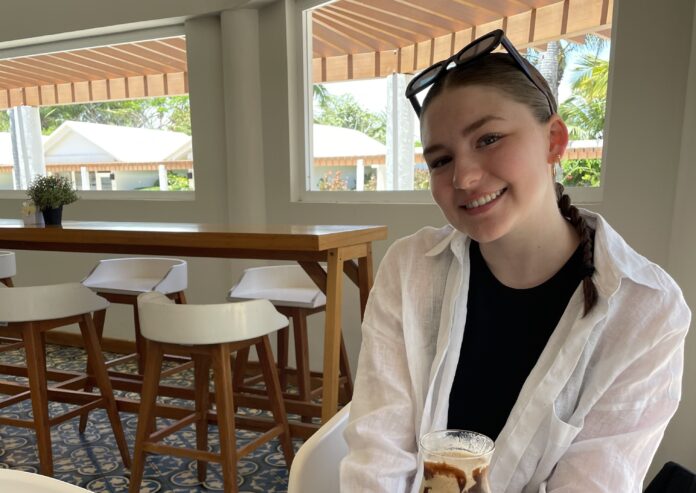

On Sept. 18, Action Now Atlantic led a “Consent and post-secondary athletics” panel with student-athletes from the Atlantic University Sport (AUS) and Atlantic Collegiate Athletic Association (ACAA). The students came together for a discussion on power dynamics, toxic locker room cultures, sexual violence and more.
This event marked a significant part of Consent Awareness Week 2023, organized by Possibility Seeds and High School Too in 2022. It aims to draw attention to the alarming increase in sexual violence during the first six weeks of the academic year.
One of the panellists, Julia Campbell, a student-athlete on the St. Thomas University women’s volleyball team, shared her thoughts on the importance of having discussions about consent in post-secondary athletics.
“Just having discussions about it and being open, making consent not something that’s so taboo but something that is more normalized,” said Campbell.
“Teaching athletes that consent is black and white.”
She explained that growing older has motivated her to take on a leadership role with her peers, to “step up and make sure that we’re holding ourselves accountable and also making sure that our athletics department is doing the same.”
For Campbell, there is always room for improvement in the implementation of programs or discussions surrounding consent in the athletic world.
“I have a desire to make sure that the youth and the people that I’m teaching or helping out with and volunteering for, don’t have to experience that type of issue.”
Sophie Landry, a recent graduate of Mount Allison University (Mt. A) and former volleyball player, was the moderator of the panel and is a prominent advocate for consent awareness.
“To be able to listen to so many people’s experiences and helping to uplift those voices, I think has been very rewarding to me,” she said.
After a major protest on sexual violence at the Mt. A campus, Landry felt motivated to make a change.
She spoke out on the responsibility that departments carry in ensuring a safe environment for athletes.
“You’ll see an institution with one sexual prevention advisor for the whole campus and that person is responsible for education, prevention and also dealing with reports and disclosures,” she said. “That’s a lot, there shouldn’t just be one person for that.”
Landry spoke on how power dynamics play an important role in the athletic environment and in athletes coming forward to report issues related to consent.
“When you’re an athlete it can be very scary to speak up. You have all these expectations and what will happen if someone speaks up against the department or a coach or another athlete,” said Landry.
She hopes to continue her work with Action Now Atlantic and her research on post-secondary athletics as she continues her MA in social psychology at Wilfrid Laurier University. She plans to “conduct research on intergroup relations and social inequalities with a focus on gender and sexuality.”
During her time at Mt. A, Landry had the opportunity to work very closely with athletics, leading the Student-Athlete Mental Health Initiative (SAMHI) on campus during her final year and helping with the implementation of mandatory sexual violence prevention training for all varsity student-athletes.
“We need a shift in culture. And that requires a lot of work.”
